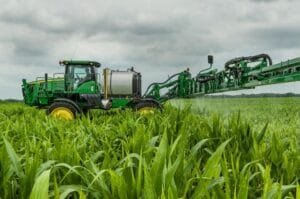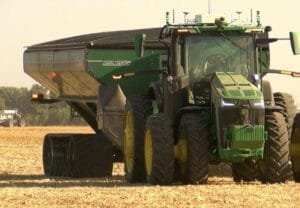The agricultural terrain in Sub-Saharan Africa confronts numerous hurdles. Hello Tractor emerged as a solution, bridging critical gaps between tractor owners and smallholder farmers through innovative technology. Founded to address mechanization challenges, this platform transforms how farming communities access essential equipment.
Hello Tractor’s concept flows from a deceptively straightforward premise. Farmers establish accounts, contribute an initial fee, and request tractors for particular dates they need field preparation. Meanwhile, tractor proprietors offer their machinery for temporary use while installing monitoring technology that tracks utilization patterns. This arrangement drastically cuts farming expenses while generating supplementary revenue streams for those who own the equipment. The efficiency boost is substantial – using one of their contracted tractors proves 40 times more effective and costs merely one-third compared to traditional manual labor approaches.
The service extends its reach across operations of various magnitudes. Yet Priscilla Asonibare, who handles Communications at Hello Tractor, observes that “smallholder farmers are reaping the highest benefit from this model.” Their pronounced advantage stems from existing barriers they typically encounter when seeking productivity-enhancing technologies compared to larger agricultural enterprises. This uneven playing field makes the platform especially valuable for modest operations seeking competitive footing.
Technological illiteracy presents a noteworthy obstacle for Hello Tractor’s target audience. Many smallholders lack fundamental digital proficiency needed for direct platform engagement. The company tackled this limitation through an unexpected strategy – recruiting local youth as “booking agents.” These intermediaries serve as pivotal connections spanning the digital divide. They perform several vital functions: aggregating farmer demand within their communities, measuring farmland to ensure accurate pricing based on exact plot dimensions, and submitting bookings through the dedicated app. This human interface element amplifies the technology’s accessibility where digital adoption remains limited.
Impact and Benefits
The numerical advantages offered by Hello Tractor stand out with remarkable clarity. Farmers utilizing their services can plant approximately 40 times faster than manual methods allow. Cost structures undergo dramatic transformation too – expenses typically decrease by about 63% compared with conventional approaches. Perhaps the most compelling statistic concerns productivity outcomes: farmers often experience yield increases of up to three times their previous harvests. Such substantial improvements fundamentally justify the platform’s existence.
One particularly valuable aspect of Hello Tractor is its application of sharing economy principles to agricultural contexts. The platform doesn’t merely facilitate transactions; it creates an entire ecosystem where collaborative consumption drives equitable access to mechanization. Where farmers previously had to depend exclusively on manual labor for critical tasks, they now participate in a system that distributes mechanical advantages more broadly. The efficiency created through this arrangement benefits multiple stakeholders simultaneously.
The Hello Tractor model exemplifies how collaborative consumption utilizing mobile technology generates transformative outcomes, though sometimes the implementation requires unexpected adjustments to suit local conditions. By connecting fragmented farm plots through their sharing platform, more equitable access to mechanization becomes possible. This equalization effect matters tremendously in regions where technological disparities frequently determine economic outcomes.
Despite being relatively new to the agricultural sector, collaborative consumption has been around for ages in various forms. What makes Hello Tractor’s approach distinctive is its deliberate application of proven sharing economy principles to traditionally underserved farming communities. Through their IoT technology, they’ve constructed meaningful connections between equipment owners and farmers throughout Sub-Saharan Africa.
Through partnerships with established industry leaders like John Deere, Hello Tractor strengthens its foundation while expanding reach. Their mutual collaboration enhances both the technology platform and equipment availability, creating synergies that benefit even the smallest farm operations.
The company continues evolving its approach as it gains experience across different agricultural contexts. While their core model remains consistent, Hello Tractor adapts implementation strategies to address location-specific challenges and opportunities. This flexibility allows for sustained relevance across diverse farming environments where uniform solutions rarely succeed.
As agricultural communities confront increasing pressures from climate volatility, market fluctuations, and demographic shifts, platforms like Hello Tractor represent vital mechanisms for adaptation. By maximizing resource utilization through structured sharing, they offer one promising path toward agricultural sustainability in regions where traditional models struggle to deliver adequate results.







